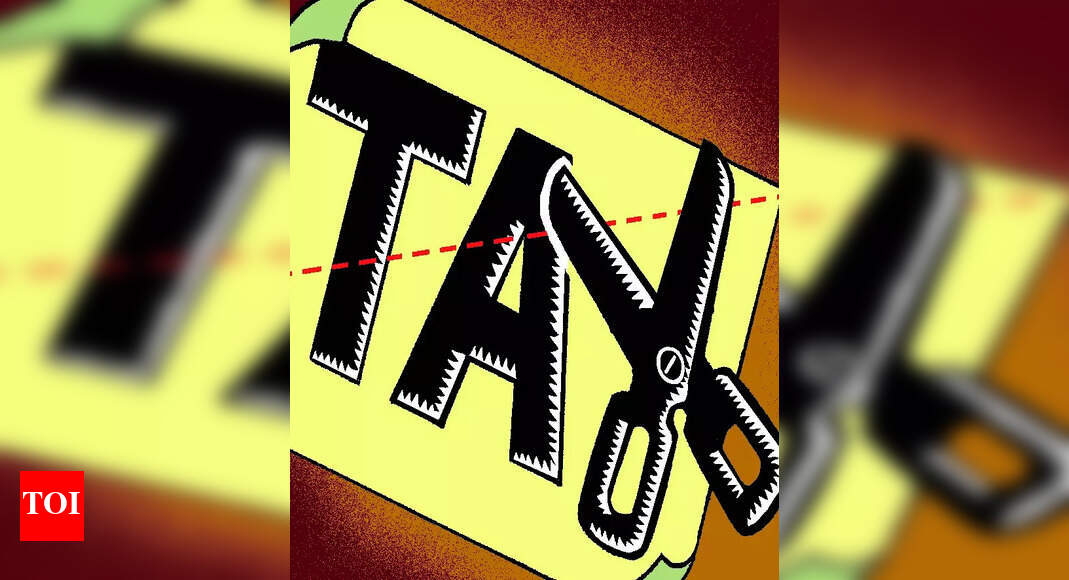India News: NEW DELHI: The Income Tax Appellate Tribunal Tuesday rejected an appeal from Congress against the I-T department for withdrawing a tax exemption to th.
Why it matters
- The Income Tax Appellate Tribunal's ruling emphasizes the stringent oversight of tax exemptions by the authorities.
- This decision may impact the Congress party's financial planning and fundraising efforts moving forward.
- The outcome reflects broader implications for political parties and their tax obligations in India.
In a significant ruling, the Income Tax Appellate Tribunal (ITAT) has turned down an appeal submitted by the Congress party regarding the withdrawal of a tax exemption by the Income Tax (I-T) department. This decision, made public on Tuesday, has stirred discussions about the financial operations and regulatory compliance of political parties in India, particularly in relation to their tax liabilities.
The IT department had previously rescinded the tax exemption concerning an income of ₹199 crore, prompting Congress to challenge this decision in hopes of reinstating the exempt status. However, the appellate tribunal concluded that the department's actions were justified and lawful, thereby dismissing the Congress party's appeal. This ruling underscores the importance of adherence to tax regulations and illustrates the government's commitment to enforcing tax laws uniformly across all entities, including political organizations.
The withdrawal of the tax exemption is particularly consequential for the Congress party, which has been grappling with financial challenges in recent years. The ruling could significantly hinder their fundraising strategies and operational budgets, further complicating their political campaigns. Analysts suggest that this decision reflects ongoing scrutiny of political funding and the financial accountability of parties, especially in an era where transparency is increasingly demanded by the public.
The tribunal's decision arrives amidst a broader climate of financial accountability that political parties are expected to face in India. Regulatory bodies are intensifying their efforts to ensure that such organizations adhere to tax norms, which has become a focal point of discussion in recent political discourse. The implications of this ruling could resonate beyond Congress, potentially affecting other political entities and their financial strategies as compliance with tax regulations comes under closer examination.
Moreover, this development raises questions regarding the financial operations of political parties. As public scrutiny intensifies, parties may need to reassess their financial practices and their reliance on tax exemptions. The ruling serves as a reminder that tax privileges are not guaranteed and can be revoked should a party fail to comply with stipulated guidelines.
Congress has expressed disappointment with the tribunal's decision, arguing that it undermines their ability to operate effectively. The party maintains that the exemption was crucial for its financial health, especially as it prepares for upcoming electoral challenges. The ruling could potentially influence how political parties approach their funding in the future, as they may need to balance their financial strategies with the risk of regulatory action.
In light of this ruling, political experts speculate that the landscape of political financing in India may be on the brink of transformation. With the IT department's increased vigilance, parties may be compelled to adopt more transparent financial practices to avoid similar situations. This could lead to a shift in how political campaigns are financed, potentially reducing reliance on donations that might be subject to scrutiny or regulatory intervention.
As the political environment evolves, it remains to be seen how Congress will navigate its financial challenges in the wake of this decision. The party's leadership may have to devise new strategies to ensure sustained funding while complying with the regulatory framework. This ruling serves as a critical juncture, prompting all political parties to reevaluate their financial strategies and operational frameworks amid heightened scrutiny from tax authorities.
In conclusion, the ITAT's dismissal of Congress's appeal is a potent reminder of the importance of regulatory compliance for political parties in India. As the government continues to enforce stringent tax regulations, parties must adapt to this evolving landscape to secure their financial futures while maintaining public trust.











